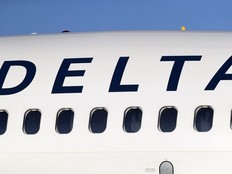GUNTER: Pierre Poilievre in strong position, despite Conservative infighting

Article content
Pierre Poilievre was far from faultless in losing his own Carleton seat in the Ottawa suburbs — a seat he had held for nearly 21 years, through six federal elections.
Leaders can’t take their own seats for granted, or at least their local organizers can’t. They have to develop a sense for when there is a voter uprising forming and warn the leader that he or she has to return home more often from cross-country campaigning.
Recommended Videos
Poilievre and his people — both locally and nationally — clearly missed doing that.
On the other hand, though, the Liberals broke a long-standing convention in Canadian politics of parties not challenging each other’s leaders too hard in their home ridings.
The Liberals weren’t playing dirty pool. There is nothing in any law book or political text that prohibits them from targeting Poilievre in his own riding. But target they did.
Poilievre should be a bit embarrassed by his personal loss (and I’m sure he is). But he hasn’t suffered a death blow to his political career or even to his continued leadership of the Conservative Party.
The Conservative leader has his caucus behind him (although there are reports that Conservative MPs would like him and his campaign manager, Jenni Byrne, to listen a little more to others’ advice next time).
Poilievre clearly failed to pivot far enough or fast enough when Mark Carney replaced Justin Trudeau as Liberal leader. And while it should have been easy for the Conservatives to display patriotism equal to or greater than the Liberals’ in the face of U.S. President Donald Trump’s trade and sovereignty threats, their party never managed to do so. In this “elbows up” election, that was probably the deciding factor.
Still, Poilievre significantly raised his party’s seat total (+24) and its share of the popular vote (+11.1 percentage points). And he did both in an election where NDP support collapsed. Typically, Conservatives don’t form government unless the Liberals and New Democrats split the left-of-centre vote, which didn’t happen this time.
Poilievre earned 41.3 per cent of the national vote versus the 39.6 per cent won by Stephen Harper in the 2011 election. But Harper won a majority victory in that election because the NDP earned 30.6 per cent of the popular vote and the Liberals took 18.9 per cent.
When the NDP received an anemic 6.3 per cent, as they did this time, even with the best Conservative showing in 37 years, it was always going to be hard for Poilievre and his party to form government.
Poilievre also had to contend with Doug Ford, the nominally Conservative premier of Ontario, who clearly (although indirectly) endorsed Mark Carney and the Liberals. Ford dined with Carney. Ford praised Carney’s intelligence several times. He announced he would happily work with Carney. Ford even had his campaign manager, Kory Teneycke, openly accuse the Poilievre organizers of “campaign malpractice.”
I don’t care that there is bad blood between Poilievre and Ford, and also between their campaign managers, Byrne and Teneycke. Ford did the Conservative campaign irreparable harm with his praise for the Liberals and condemnation of the Conservative campaign.
For the good of the Conservatives’ future chances, that has to stop.
Poilievre took 53 seats in Ontario, up from 37 in the last election, while also holding the Liberals to 69 seats when polls predicted the Carney party could win as many as 90. Poilievre’s Conservatives also captured 43.8 per cent of the total vote in Ontario, slightly more than the 43 per cent earned by Ford in Ontario’s provincial election in February.
It’s also a sign of significant internal party support for Poilievre that a Conservative backbencher from Alberta (two-term MP Damien Kurek) has already stepped forward to give up his safe seat (Kurek won Battle River — Crowfoot Monday with 82 per cent of the vote) for Poilievre.
Unless the Liberals violate another Canadian political convention — namely, calling a byelection as early as possible for another party’s leader — Poilievre should be back in the Commons by fall.
Bookmark our website and support our journalism:Don’t miss the news you need to know — add EdmontonJournal.com and EdmontonSun.com to your bookmarks and sign up for our newsletters here.
You can also support our journalism by becoming a digital subscriber. Subscribers gain unlimited access to The Edmonton Journal, Edmonton Sun, National Post and 13 other Canadian news sites. Support us by subscribing today: The Edmonton Journal | The Edmonton Sun.













Postmedia is committed to maintaining a lively but civil forum for discussion. Please keep comments relevant and respectful. Comments may take up to an hour to appear on the site. You will receive an email if there is a reply to your comment, an update to a thread you follow or if a user you follow comments. Visit our Community Guidelines for more information.